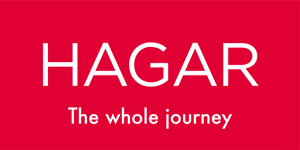
Reuters file photo
A highly organised crime amongst a deeply woven web of intricate networks and syndicates, traffickers employ sophisticated methods making it difficult to detect human trafficking.
Gone are the days where victims are shipped across borders in packed crates. Today, unsuspecting victims carry all the necessary documentation and enter through the immigration checkpoints without knowing they have been scammed. Upon being picked up by their agents at the airport, it is too late for escape.
Singapore is a popular transit hub and destination point for trafficking activities with its lucrative economic landscape and employment opportunities.
To combat human trafficking in Singapore, a new law – the Prevention of Human Trafficking Act – came into effect in March 2015. To date, three convictions have resulted from the eight cases prosecuted under the Act. Before the new Act, traffickers were dealt with under other laws such as the Penal Code and the Women’s Charter which may carry lighter penalties for similar offences.
The enactment of a dedicated piece of law through the Prevention of Human Trafficking Act was a crucial step to addressing trafficking in persons issues. Since 2010, comprising various government ministries and agencies, the Inter-Agency Taskforce on Trafficking in Persons put in place a comprehensive national plan of action that covered a slew of initiatives aimed at preventive measures, protection support for victim-care, prosecution frameworks with strong legislative provisions, and partnerships across borders and various agency groups.
Partnering the Singapore Taskforce, Hagar has been working with survivors who are rescued and identified as trafficking victims. We provide a range of recovery services to help them overcome the trauma and rebuild their self-esteem. Educational and employment support is also rendered to these survivors while they remain in Singapore to assist in their court trial as witnesses. When their court case is over and before they return home, Hagar further helps by identifying local help groups within their home community and work with them to provide continuing support to the women upon their return.
From this Channel NewsAsia article [1], it is clear that there are many challenges in prosecuting trafficking cases and victims experience insurmountable barriers to accessing help.
For those who are tricked into the country, they usually are unable to speak English or the local languages and they do not know anybody. As strangers in a foreign land, they are more likely to adhere to the instructions of their employers and submit out of fear without knowing what their options and rights are. Thus, it becomes difficult to identify such victims if they do not come forward. Another obstacle could also be physical restraints where they are always accompanied by an escort to ensure that they do not escape. Traffickers also employ psychological means to bind them down, threatening to repatriate them without any salary or to harm the safety of their families back home.
While much has been done, more action needs to be taken. Empower a survivor today and enable her with skills to start a whole new life. You can also learn the signs and reporting channels available here. These victims could be in our neighbourhood and we can report suspicious trafficking activities to the police or the Ministry of Manpower. You could change the world for one person and her family.
——————
Empower A Survivor
Donate Now
Provide them with the necessary protection, literacy and skills to start a whole new life.
Empower a Survivor
Donate Now
Provide them with the necessary protection, literacy and skills to start a whole new life.
